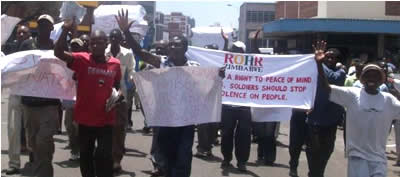Last night in an effort to fall asleep I took a gender mentality quiz from a recent FEMINA publication. The quiz was titled, “Do you think like a man”. The questions got more interesting as I got to understand what the author considered ‘male behavior’ that ‘normal’ women supposedly shouldn’t ordinarily display.
You had to strongly agree, agree or disagree with listed statements in the quiz. Some of them were: I can programme the remote control for my TV all by myself (of course I can!). I understand how a parliamentary system works. I know the basic rules of most sports including golf and tennis. I didn’t cry when I watched the Titanic (me, I didn’t really.) I know what an AC/DC transformer is and silliest of all; the angle between the floor and all four walls of any room is probably 90 degrees. Duh! I scored a lot of strongly agrees and at the end of the quiz, fell under the category of uber-male, i.e without any hint of womanly thought and susceptible to the same kind of weaknesses of the male mind in being unable to empathize with others and communicate needs effectively. What utter rubbish. Just because I understand a few things makes me male minded? I was surprised certain things were considered a preserve only for male species.
Anyhow, there was probably an element of truth in some of the things because for instance, here in Zimbabwe, how many women actually understand or even want to understand how the parliamentary system works, let alone the constitutional reform process that is currently staring at us?
At a Gender Forum meeting I attended recently, it was noted that a trend developed amongst women during the 1999 consultative processes. The women tended to boycott such processes because they simply either did not understand the processes and the constitution itself or recognize its immediate relevance to their lives. Some women are generally ‘technophobic’ and far removed from the language used in the constitution. Others simply do not care probably because they do not think their participation would make any marked difference anyway. These factors have presided over the oppression of women for a long time.
The chance to once and for all do away with the authoritarian 1979 Lancaster House constitution that has been amended at least over 15 times is here, and it would be such a disservice if women did not grab this opportunity to advance their interests especially in line with the many loopholes that dog the current constitution.
I believe it is up to civil society to point out to many an ignorant woman that a constitution determines how they are governed, and that our current constitution does not provide for things like reproductive health and sexual rights or guarantee women’s equal access to ownership and control of property. It also has sections like the S111B that prevent the automatic application of international human rights treaties like CEDAW. This would be an opportunity to lobby for the inclusion of women in parliamentary sub-committees and also ensure that the lack of a guarantee of security of a person’s bodily and psychological integrity is done away with, especially in view of the fact that there is a lot of justice outstanding from the violence that accompanied last year’s harmonized elections.
I believe it is up to all of us as individuals to take it upon ourselves to encourage and educate our neighbors about partaking in this critical process and attend consultative meetings. It is about time we set the precedent for our own possible Obama-like election hopefully to be called in 2011. The South Africans have just had something of a democratic election, and they boast one of the most democratic constitutions on the continent. It would be nice for once to stop wishing and thinking when we too shall see democracy skate across our land. Only we can make it happen if we start by being or neighbor’s keeper.










